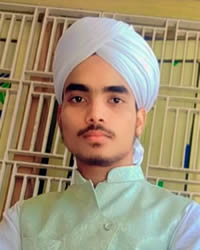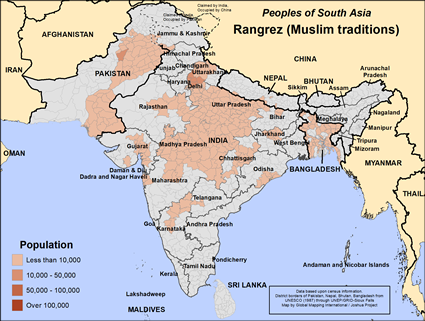The traditional occupation of the Muslim Rangrez was that of dyeing and printing clothes. Many are still in this profession, but some are moving to other lines of work. The Muslim Rangrez are converts to Islam from the Hindu Rangrez community. Many believe they originally came from Central Asia. The Rangrez tend to marry within their caste. Some marry their cousins while others will not marry anyone in their gotra or clan. Families arrange marriages with the consent of the young people. Caste councils promote the interests of the Rangrez and decide legal disputes within the community.
There are no Christ followers among the Muslim Rangrez. Someone will need to win entire families to the Lord so they can withstand the inevitable persecution.
Pray that a strong movement to Jesus will bring whole Rangrez families and communities into a rich experience of God's blessings.
Pray the members of the caste councils would become Christians and lead their families to Christ.
Pray that Indian Christians would reach out and share the gospel with the Muslim Rangrez.
Scripture Prayers for the Rangrez (Muslim traditions) in India.
| Profile Source: Joshua Project |











